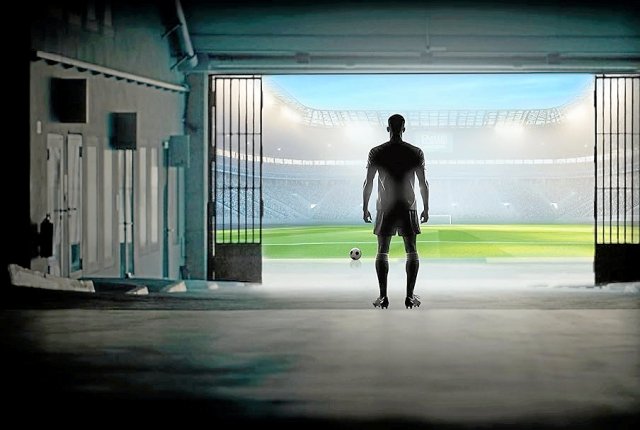The loneliness in the stadium: To date (almost) no openly gay man is an active professional footballer.
Foto: Amazon
A common myth of liberal modernity is that social taboos are a thing of the past. “Everything can, nothing has to,” was the programmatic slogan. It goes without saying that the proclaimed claim is, as is so often the case, far ahead of reality. In this respect, the title of Manfred Oldenburg’s film “The Last Taboo” – a documentary about male homosexuality in football that was released in mid-February – is also a bit unfortunate. Because there are of course still many taboos; whoever searches finds.
But it does hit a nerve: If you compare football with other social spheres such as politics or culture, it is actually striking how stubborn the hatred of gays among footballers – you don’t have to gender here – persists to this day. Companies and influencers have long been advertising LGBTQI sensitivity because it promises more profits. This is how politicians go to get votes.
And yes, this trend has not gone unnoticed by football officials either, so that the kickers are now often sent onto the pitch with rainbow armbands… as long as there is no headwind. Nevertheless, out of an estimated 500,000 active professional footballers worldwide, only seven male players have so far come out as queer. Seven!
The documentary tries to shed light on backgrounds and fates through interviews, such as that of Justin Fashanu. The Brit began his professional career in 1979 at the age of 18 with Norwich City. After a move to Nottingham City, his new coach Brian Clough noticed that Fashanu was regularly visiting gay bars in Nottingham. Clough made him his team’s scapegoat, repeatedly calling him a “fucking fag” in front of the entire team. Instead of training with the team, he regularly had to work penalty shifts.
After Fashanu became the first player in the world to come out in 1990, he increasingly lost the support of those around him and thus the ground beneath his feet. Finally, in 1998, a 17-year-old accused him of raping him. An accusation that was not legally substantiated. Fashanu said the boy had previously blackmailed him for money. After a media hunt, he was found two months later hanging in a back garage in London.
In his memory, his niece Amal Fushanu founded a foundation against homophobia and racism in football in 2019. She also has her say in the documentary: “Society is not the problem, football is the problem.” In doing so, she removes football from society. As an emotional statement this may be understandable; However, as an analysis it falls short. Of course, football’s homophobia is an expression of society’s homophobia.
The documentary barely sheds light on why hatred of gays persists in football. An explanation is repeated in several places: gays are considered soft, football is considered hard. This also explains why homosexuality is not taboo in women’s football. It’s a shame that the comparison isn’t made in the documentary, as this is how the constructed nature of stereotypes can be explained.
The taboo surrounding gay footballers is impressively highlighted in the film. The focus is on individual fates like that of Fashanu or Thomas Hitzlsperger, rather than social systems. But the documentary also gives hope: in 2023, the Czech Jakub Jankto, an active national player, came out for the first time. The wave of hate stopped. That’s encouraging.
Available on Prime Video.
Subscribe to the “nd”

Being left is complicated.
We keep track!
With our digital promotional subscription you can read all issues of »nd« digitally (nd.App or nd.Epaper) for little money at home or on the go.
Subscribe now!
link sbobet sbobet88 sbobet88 sbobet
